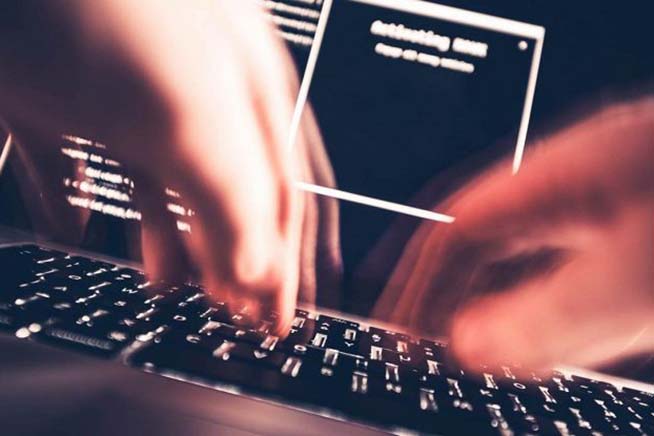During ITASEC, a conference on Italian information security, the need to create operational teams for cybersecurity emerged
Albert Einstein, in a famous aphorism attributed to him some time ago, stated that he did not know how the Third World War would be fought, but he was certain that the Fourth would be fought with sticks and stones. Given the world geopolitical and technological situation, we can affirm that the next one will be a cyber-war.
The skirmishes of the last months, that have involved mainly USA and Russia but not only, let us glimpse a possible escalation, with an arms race (digital and informatic, in this case) that is slowly starting. In this scenario, Italy plays a leading role. Recently targeted by Russian hackers (according to parliamentary sources, the computer system of the Air Force has been attacked), our country is one of the favorite "prey" of hackers from halfway around the world (including the United States, it seems) and home to thousands and thousands of zombie computers - the so-called bots - ready to be used to launch powerful DDoS attacks.
Nearly the creation of the Comando Interforze per le Operazioni Cibernetiche (CIOC)
For these reasons, Italy is ready to equip itself with a "squadron" of cybersecurity experts that will be ready to act in case of need to defend our strategic infrastructures from possible hacker attacks. According to what emerged during the ITASEC 2017 conference, being held at Ca' Foscari University in Venice, the Italian armed forces would be enlisting the best cybersecurity experts in our country (and beyond) to create a cyber commando that is always ready to go into action. The Comando Interforze per le Operazioni Cibernetiche (this is the name chosen for the Army's cyber elite) will become operative in 2017 and will be in charge of supporting and protecting military operations and acting as a coordinator and link with other national structures in charge of cybersecurity (such as CNAIPCI, Centro anticrimine informatico per la protezione delle infrastrutture critiche).
The support of ethical hackers
In the new digital defense strategy there will also be room for ethical hackers. Il Team per la Trasformazione Digitale, istituito presso la Presidenza del Consiglio dei Ministri, ha infatti chiesto la collaborazione dei cosiddetti white hat hacker, esperti di sicurezza informatica specializzati nell’attività di verifica della sicurezza di una rete informatica, delle strutture software e hardware che la compongono e dei software di uso comune. Lo scopo ultimo della loro attività è di individuare eventuali falle e bug e segnalarli, così che possano essere sistemati nel più breve tempo possibile. Nei piani dell’agenzia governativa, gli hacker etici dovrebbero testare siti e software della pubblica amministrazione alle ricerca di eventuali vulnerabilità.
Accenni di cyberwarfare
 Fonte foto: Shutterstock
Fonte foto: Shutterstock
Clicca sull’immagine per accedere alla gallery con 5 consigli su come difendersi dagli hacker
L’iniziativa delle forze armate italiane non è affatto estemporanea, né l’unica del suo genere in Europa e nel mondo. La Francia, ad esempio, ha recentemente dato vita al Comcyber, un comando interforze deputato sia a difendere le infrastrutture strategiche d’Oltralpe, sia a portare attacchi informatici contro obiettivi sensibili. Gli Stati Uniti, invece, hanno creato il loro cyber commando nel 2009 e da allora non hanno mai smesso di investire risorse economiche e umane.
Come difendersi dagli attacchi hacker
Cliccando sui link che seguono, invece, potrete scoprire suggerimenti, alcuni più tecnici altri più alla portata di tutti, riguardanti la sicurezza informatica e scoprire le tipologie di attacchi più comuni: dagli attacchi DDoS al phishing, passando per le botnet.
- Salvarsi dagli hacker: 5 errori da non commettere
- Cybersecurity, gli hacker colpiscono 10 milioni di italiani l’anno
- Security Intelligence Report: ecco i principali malware in Italia
- Allarme virus, trojan e ransomware, la guida per difendersi
- Cosa sono i ransomware e come si diffonde il contagio
- Pericolo ransomware: come difendersi con buone pratiche e antivirus
- Dilemma ransomware: è possibile fermare il “virus del riscatto”?
- Attacco ransomware: piccole e medie imprese in pericolo
- Cosa sono gli attacchi DDoS, come nascono e come difendersi
- Basta un attacco hacker sferrato da un PC per mettere KO Internet
- Cos’è il phishing? Una pericolosa truffa: ecco come non abboccare
- Privacy online: ecco come salvaguardare i nostri dati personali
- Come creare password sicura per proteggere l’identità online
- Password troppo semplice, ecco come gli hacker ci rubano i dati
- Addio ai furti di password, ecco la verifica in due passaggi
- Mercato nero dell’illegalità, ma non solo: come funziona il dark web
- Le dogane statunitensi utilizzano il dark web per trovare gli hacker
